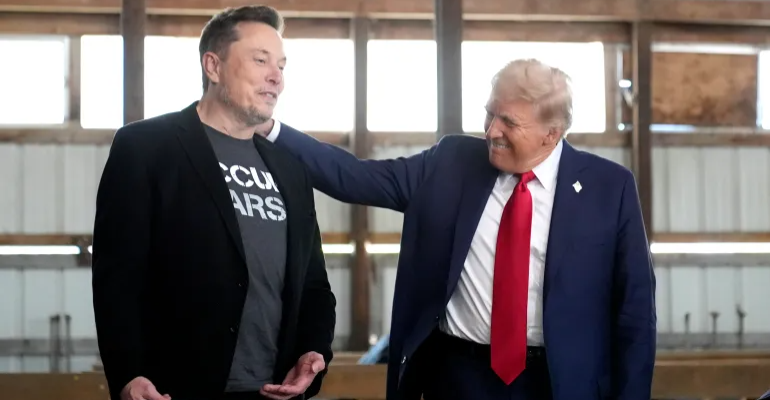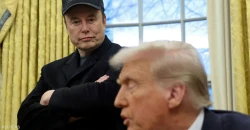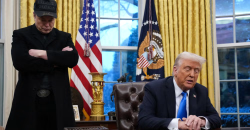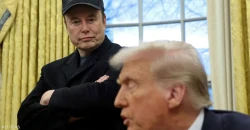Efficiency or overreach? Musk's new government post

Shafaq News / Billionaire Elon Musk has assumed a new role as head of the "Government Efficiency Committee," established by President Donald Trump at the beginning of his second term in the White House.
The appointment has sparked mixed reactions, with supporters viewing it as a necessary step to combat fraud and waste, while critics express concerns over potential conflicts of interest and the scope of Musk’s authority.
On his first day in office, President Trump issued a series of executive orders, including the creation of the committee tasked with “maximizing government efficiency and productivity.” Musk has stated that the agency’s objective is to curb fraud and waste of taxpayer money by scrutinizing the spending practices of federal agencies.
However, Musk’s access to sensitive federal data and private information has drawn criticism from officials and legal experts, who argue that such access could violate existing laws and grant him unchecked authority. Democrats on the House Oversight and Reform Committee have sought a subpoena for Musk to testify, but the request was blocked by Republicans. Democratic committee member Gerald Connolly questioned, “Who is this unelected billionaire who can attempt to dismantle federal agencies, fire personnel, relocate them, offer early retirement, and implement sweeping reforms without oversight or congressional approval?”
The Washington Post reported that Musk’s committee representatives have used an AI program via Microsoft’s Azure cloud computing service to analyze sensitive data from the Department of Education, including details on grant funds and travel expenses. More recently, Musk and his team began overseeing the Treasury Department’s payment system, which processes transactions worth trillions of dollars annually—a move that has raised concerns among Democratic lawmakers, who described it as “extremely dangerous.”
In response, Musk defended the initiative on X, stating, “The only way to stop fraud and waste of taxpayer money is to track spending flows and temporarily halt suspicious transactions for review.” However, a federal judge later suspended the committee’s oversight of the Treasury’s payment system, prompting Musk to call for the judge’s impeachment and label him “corrupt.”
The White House has maintained that the committee operates with high transparency, citing examples such as the cancellation of unused building contracts and the uncovering of Social Security funds being paid to ineligible recipients. Both Trump and Musk expressed confidence that the American public will support their efforts, with Trump stating that Musk “is uncovering massive fraud, corruption, and waste.”
Homeland Security Secretary Kristi Noem noted that she is collaborating with Musk to improve the department’s efficiency, effectively conducting an audit of federal agencies. Energy Secretary Chris Wright defended the committee’s work, highlighting the team’s expertise in IT and systems management. Republican Congressman Jim Jordan, an ally of Trump, expressed satisfaction with Musk’s actions but warned that Congress might eventually intervene.
In less than 20 days since Trump’s return to the White House, several policy changes have been initiated on both domestic and foreign fronts. Trump recently indicated that Musk’s audit might uncover billions of dollars in fraud and misconduct within the Departments of Education and Defense.
Critics argue that Musk’s committee is operating without sufficient oversight, entering multiple government agencies without prior notice, and potentially creating conflicts of interest given that Musk’s companies hold multibillion-dollar contracts with agencies such as the Pentagon. Additionally, Musk’s proposal to offer government employees paid leave until September 2025 in exchange for their resignations has raised legal concerns, as only Congress holds the authority to allocate federal funds for such measures.
The administration’s decision to suspend operations of the US Agency for International Development has also raised questions about presidential authority to suspend government institutions without congressional approval. There is speculation that Trump may request legislation to dissolve the agency entirely—a move that would require the support of 60 Senate members, a prospect considered challenging.
Musk has faced further criticism for not directly addressing public concerns regarding his team’s access to sensitive American data, though supporters contend that such access is necessary to identify and rectify inefficiencies in government spending.





